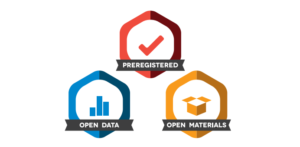Choose open research
Supporting researchers to open up more of their research outputs
What is open research?
Open research (OR), also sometimes called ‘open scholarship’ or ‘open science’, is the movement to make all the outputs of scholarly activity available for others to read and build upon.
Open access, making book chapters and journal articles open, is often the focus of activity. But open access is just one element of open research. OR has a broader ambition by highlighting the benefits of opening up everything produced by a research project; including its data, code, methodology, software, conference papers, and more.
Why is open research important?
We believe open research is the best way to amplify and communicate research, to deliver change that improves lives.
OR also supports the robustness of the research process, enabling validation, research transparency, reproducibility, and replicability of results. That’s why we have a fast-growing range of initiatives to support and encourage researchers to make the outputs of their work open throughout the research cycle.
How to choose open research
In addition to the many open access publishing choices available to researchers, the options outlined below are designed to inspire researchers to choose open research and to give them credit for doing so.
Data sharing and open data
Journal data sharing policies
Most Taylor & Francis and Routledge journals already have a data sharing policy. These encourage researchers to make the data associated with their article freely available to others. And a growing number of titles specifically require data to be shared under an open license which allows re-use by all.
F1000Research data sharing policy
The F1000Research platform has a progressive open data policy. It requires all articles to include citations to repositories that host the data underlying results, together with details of any software used to process these results.
Book data sharing policy
All new Taylor & Francis book publications entering the production process are now encouraged to adhere to the books data sharing policy.
Data notes
Data notes are a short peer-reviewed article type that concisely describe research data stored in a repository. They increase the discoverability and transparency of research – helping researchers to comply with funder mandates on data sharing. They also support FAIR data (findable, accessible, interoperable and reusable).
F1000Research and a growing number of Taylor & Francis journals publish data notes.
More open research choices
Open peer review
F1000’s open and transparent peer review model, for F1000 Platforms like F1000Research, is among the peer review options we offer. In this post-publication model, each peer review report, plus the approval status selected by the reviewer, is published with the article. This includes the reviewer’s name and affiliation.
Authors are encouraged to respond openly to the peer review reports and can publish revised versions of their article, if they wish.

Open Science Badges
Researchers submitting to journals that support the Center for Open Science (COS) initiative have the opportunity to apply for one or more Open Science Badges. COS currently offers three badges: Open Data, Preregistered, and Open Materials. If an article meets the criteria, the badge(s) will be displayed within the article on Taylor & Francis Online.

Registered Reports
17 Taylor & Francis journals and many F1000 Platforms, including F1000Research, accept Registered Report submissions. Registered Reports change the way experiments are designed and conducted by breaking the peer review process into two parts.
The first round of peer review is much earlier in the process than the standard research workflow. This takes place after the experiment has been designed but before any data has been collected or analyzed. Find out more about Registered Reports.
Preprints
A preprint is the version of an article before it has been submitted to a journal for peer review. Preprints are also known as the Author’s Original Manuscript (AOM).
If a researcher uploads an early version of an article to a non-commercial preprint server, they can subsequently submit to a Taylor & Francis or Routledge journal. We do not consider posting on a preprint server to be duplicate publication. This will not jeopardize consideration for publication. Read our preprint policy.
Learn more about how Taylor & Francis Open Research can enhance your institution.